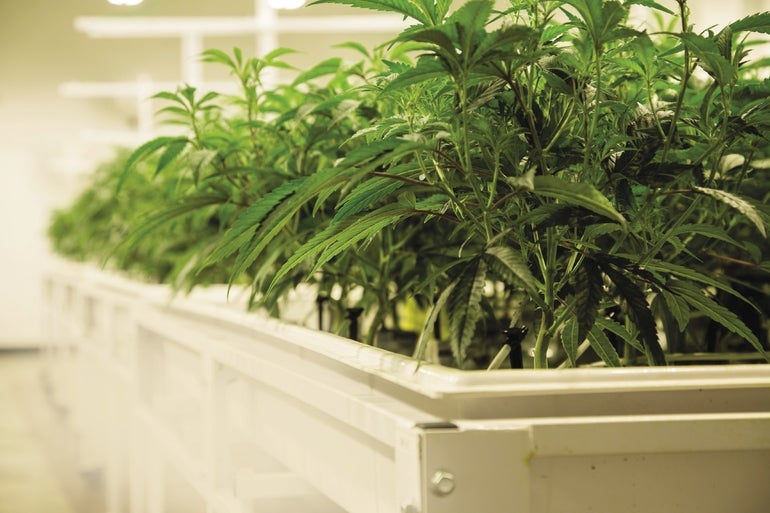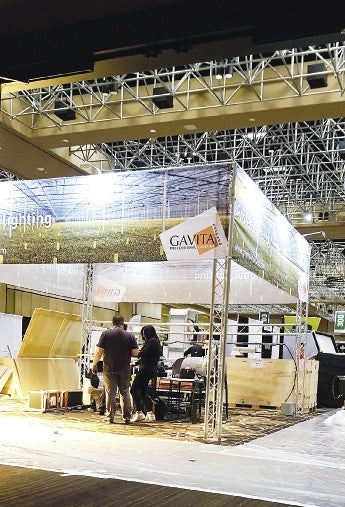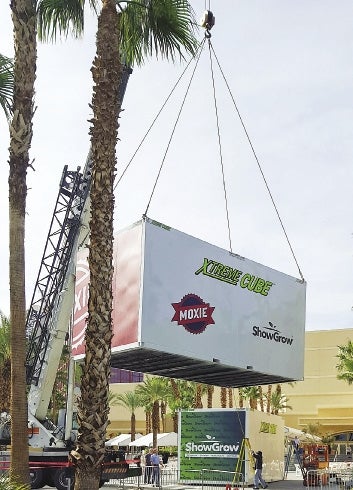The battle over legal pot rages on
The wave of Election Day victories had pot entrepreneurs seeing good times ahead as they gathered in Las Vegas last week for the national Marijuana Business Convention & Expo.
The allure of rich markets in Massachusetts and California are intoxicating.
But international cannabis expert, blogger and speaker Jeffrey Friedland saw through the marijuana haze and quite presciently into its legalized future.
“It's not time to break out the champagne yet,” he cautioned, pointing to problems ranging from federal banking rules to local zoning fights.
The margin – 54-46 percent in the commonwealth – reflects significant opposition remains. The margin was smaller in Maine, larger in California and Nevada. Arizona voters rejected a ballot measure there.
And the 800-pound regulatory gorilla – the federal government – is still firmly opposed, although President-elect Donald Trump has promised to reverse that stand.
The reality of legal marijuana
Is the way forward as simple as looking to the first legal states – Alaska, Colorado, Oregon and Washington state – or will each state face unique circumstances and opportunities moving forward?
The answer is a little of both, said Friedland, whose perspective is tempered by his experience as a former dispensary owner in Colorado.
“So we now have recreational marijuana; now let's get down to the realities. The short answer is it's complicated,” said Friedland, who spoke at the convention. “In Colorado, it took a long time for the states to come up with regulations and requirements.
“I don't want to pop anybody's balloon, but don't wait in line yet to buy marijuana. Each state is going to be different. It's all about the regulations themselves and how supportive the government and regulators are. Then the ability to find locations based on zoning for business use comes down to city councils. The villages decide.”
Friedland calls it the “soccer mom issue.” That's when residents in locales don't want a marijuana store in their neighborhood despite its legality. He explained the “reefer madness” stigma is deeply entrenched in many people in the United States, where it's still a federal crime to possess or sell cannabis.
“Time will tell how the laws and regulations get implemented and how friendly the police and government are to the plant,” said Friedland, author of “Marijuana: The World's Most Misunderstood Plant.”
“In Boston, they might be favorable to the implementation – and that could even change within neighborhoods there – but you go west in Massachusetts, and you might get into more unfavorable areas, but you just don't know,” he said.
Central Mass local opposition
While Question 4 passed in Worcester by about 6,200 votes, the city's suburban neighbors disagreed. Question 4 fell short in Shrewsbury, Boylston, West Boylston, Holden, Paxton, Westborough and Sutton.
More than 100 state legislators are on record in opposition.
Under the Massachusetts referendum, recreational marijuana becomes legal Dec. 15; the first retail shops aren't likely to open until 2018. The number of permissible pot sellers is limited to 20 percent of the community's liquor stores. However, cities and towns can approve a local ban or set a lower limit.
Local police are already calling attention to gray areas in the law – from establishing the level at which drivers are impaired to potential liability for the effects of second-hand smoke.
Even if a community allows marijuana shops, the battle is far from over.
The problem with financing, retail
Banks pose a sobering speed bump, Friedland said. No matter what the states decide, marijuana is still an illegal Schedule I drug at the federal level. And banks that rely on the federal banking system to move money simply can't defy the law.
Potential retailers seeking to secure a location will more than likely consider a bank-held property. Most those half-empty strip malls across the country are owned by banks, which have stipulations that prohibit the use of property for a criminal enterprise.
“It's going to take a while, but ultimately people will be able to go in off the street into a store and buy marijuana,” Friedland said.
James Winokur, CEO of Boston-based CannaKorp, agreed. “Commerce will evolve. And we're really excited about that.”
“We're all feeling very positive that we're moving as a country in the right direction,” Winokur said. “It's good for those who want to use cannabis for its benefits and makes it more normal.”
Public, social pot use
CannaKorp has developed the world's first single-use pod and vaporizer system, which is called the CannaCloud. It is similar to the way people use Keurig for preparing and drinking coffee.
And therein lies another issue – public consumption, or social use, of marijuana.
Colorado, viewed as the most progressive toward the plant, became the first state to go fully legal when it passed its ballot initiative in 2012. However, even that state's regulations were written to outlaw public use indoor or outdoor, Friedland explained. That means people could still be arrested for lighting up in public and that establishments such as cannacafes or budbars were merely a dream.
It took four years before Colorado could get a social use measure on the ballot, which passed in a squeaker of a vote on Election Day. Denver's result is perhaps the best barometer of how, while cannabis continues to notch victories, there still exists a sizable minority opposed and unfriendly toward it.
Massachusetts became the first East Coast state to OK recreational marijuana, and despite the likely local-level pushback in some areas for the sale of cannabis, there is little doubt that the Green Rush gained enormous momentum on Election Day.
Massachusetts and Maine showed that legalization isn't just a West Coast thing. And according to the Washington Times, analysts have predicted national cannabis sales of $14 billion to $17 billion this year with the potential to reach $44 billion by 2020.













0 Comments